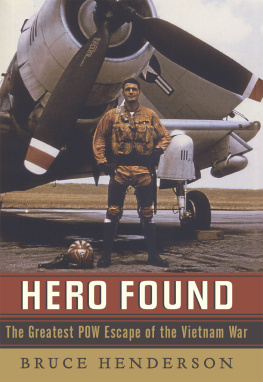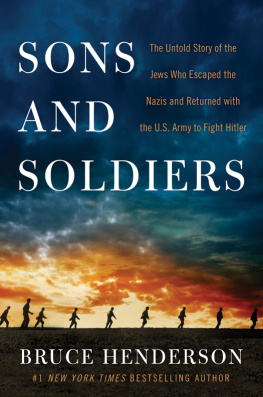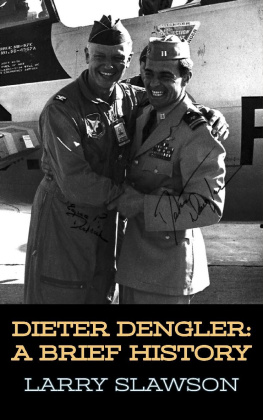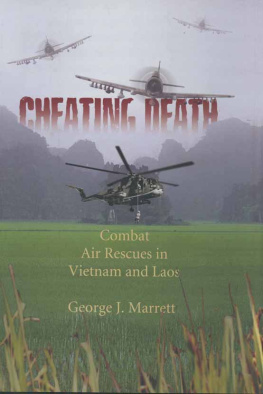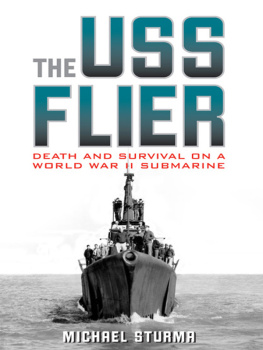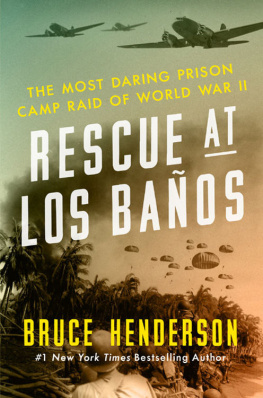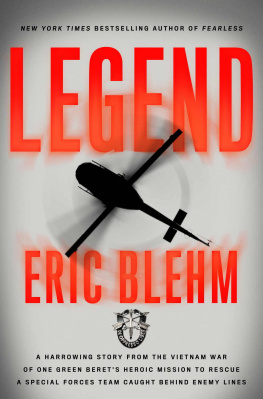I grew up believing in heroes. For me, they were always pilots.
It began with U.S. Army Air Corps pilot, 2nd Lt. Robert G. Silva, my maternal grandmothers youngest offspring. Bob went missing on March 4, 1944, when his P-51-B Mustangnamed Hi-Yo Silva , mimicking the Lone Rangers command to his steed Silver on the popular radio showdropped out of formation at 22,000 feet in a heavy overcast above the North Sea. His squadronthe 353rd Fighter Squadron of the 354th Fighter Group, which finished the war as the highest-scoring fighter squadron in the European theater, with 295 air victorieswas returning to Boxted airfield in eastern England after escorting B-17 Flying Fortresses on the first daylight bombing raid over Berlin. The daring mission, involving hundreds of Allied bombers and fighters, marked a turning point of the war, according to the missions bomber wing commander, Col. H. Griffin Mumford. Thereafter, bombing runs flew day and night over the heartland of Germany until that countrys unconditional surrender seventeen months later. The March 4 mission, the subject of a six-column front-page headline in the New York Times (800 U.S. Bombers Smash at Berlin by Day), proved historic for another reason: with the loss of twenty-three fighters, most due to the [bad] weather rather than the enemy, it was to be the costliest day of the war for U.S. fighter squadrons in the skies over Europe.
Born the year after the war ended, I spent the fondest days of my youth at my grandmother Daisys rambling and always welcoming Victorian home at 1522 Lincoln Avenue in tree-lined Alameda, California, a small island community in the San Francisco Bay next to Oakland. I was no more than eight or nine years old when I first opened a brown-striped suitcase kept in a closet in the middle bedroom, formerly my grandfathers room but after his death a place to keep trunks, boxes, and a treadle sewing machine at which my grandmother mended, shortened, and cuffed. The suitcase had been Bobsused in his travels from home while he attended the College of the Pacific in Stockton, California, where he finished a civilian pilot training course before joining the Army Air Corps as an aviation cadet in the summer of 1942 at age twenty-two.
The old suitcase was a boys treasure trove. Initially, what interested me the most was the pilot paraphernalia: leather-rimmed goggles, a helmet of soft leather with padded chamois lining, leather gloves, a silk scarf, silver aviator wings, and two padded boxes each containing a tiny, folded U.S. flag atop a shiny military decoration. One was the Purple Heart, given to any member of the military wounded or killed in action. The other was an Air Medal, awarded for heroic or meritorious achievement while participating in aerial flight. I was particularly taken with the design of the latter: the bronze medallion had a swooping eagle clutching a lightning bolt in each talon. Also in the suitcase was my uncles pocket-size address book. Tucked inside the back flap was a stick of Dentyne gum, hard and no doubt unchewable. My grandmother always had a new pack of gum waiting for me whenever I arrived, and despite the many brands of gum in the world it was always Dentyne. I never knew why until that moment.
Throughout the years I would regularly slip into the middle bedroom and open the suitcase. In time, I read all the letters my grandmother kept insidemore than 100 of Bobs letters home from his earliest days in army flight training until his last letter written three days before his final mission. On the front of that envelope my grandmother wrote that she had received it on March 13, 1944, and added, My last letter from my darling.
March 1, 1944
Dear Mom
Received two letters from you todayIm happy again! Im glad youre all so proudbut like I told you once before Momeverything I am, or hope to be, I owe to you and Pop. Think Abe Lincoln said that once, regardlessI mean it too!
Another medal today to my creditI now can wear the Oak Leaf Cluster. Its a little bronzed leaf you wear on your Air Medal, signifying youve earned the Air Medal a second time. Two more Oak Leaf Clusters to go, and then the D.F.C. (Distinguished Flying Cross), the highest aviation award there is. But thats wishful thinkingbetter not cross my bridges till I get to them.
Well, angellate againand expect another date in the clouds with Jerry tomorrowso Id better get some sleep.
All my love,
Bob
Three days after opening Bobs last letter my grandmother received the dreaded Western Union wire from Washington, D.C., expressing the secretary of wars deep regret that your son has been reported missing in action. That telegram, yellowed and wrinkled, was also in the suitcase. So was a typed letter from Bobs commanding officer, Col. Jack T. Bradley, dated April 12, 1944, in answer to a letter my grandmother wrote seeking further information about her missing son. Bob was missing after a Berlin raid and was last seen as the squadron was climbing through the clouds near the French coast, wrote Bradley, who would finish the war as one of the top P-51 aces, with fifteen confirmed aerial kills. We ran into some terrible weather that day and feel sure that Bob lost control of his ship in the clouds, as did several others. We broke into the clear to find that he was no longer with us. We were at a very high altitude and Bob had a good chance of getting out safely, even under the worst circumstances. Therefore we are all hoping to hear that he is a prisoner of war. Several men who did not seem to have as good a chance of surviving as Bob did have been reported captured by the enemy. Bobs loss is greatly felt by the squadron. He has completed many successful missions against the enemy and has been awarded the Air Medal and Oak Leaf Cluster. His promotion to First Lieutenant came through only a few days after his last flight. The loss of a pilot with Bobs experience and ability is in itself telling, but more than that we miss Bob himself, as he was everyones friend and never seemed to lose his cheerfulness. If we receive any information at all about Bob, we will forward it to you without delay.
The hope given to the family by the commanding officers letter dissipated when Bob was declared killed in action, although neither his body nor the wreckage of his aircraft was ever found. When the war ended, Bobs wingman, David B. OHara, visited my grandparents in Alameda and filled in some details about Bobs last flight. Bob had problems with his planes oxygen system, which had sent him back to the airfield shortly after takeoff for a quick repair. Taking off a second time, he rejoined the aerial armada bound for Berlin. OHara thought Bobs oxygen problem might have recurred on the flight back to England as they crossed the North Sea at high altitude, causing him to lose consciousness. OHara saw Bobs plane oscillating more-or-less in a pendulum motion from one side of the formation to the other, then shoot upward at least 100 feet and stall out. Trying to stay with his wingman, OHara hit full throttle and yanked on the stick, resulting in a snap roll and spin. When OHara regained control of his plane, Bob was gone.
My spirited and indomitable grandmother, who chased fire engines in her bright red 1952 Chevy coupe and at Christmas gave the best gifts under the tree, lived another forty years, to the venerable age of 101, but not once did I see her speak about her lost son without her eyes brimming with tears. In truth, it was not something I fully comprehended until I had my own children. Although my grandmother had three other children, including my mother, it was no secret that her youngest, Bob, to whom she gave birth in the front bedroom twenty-four years before his death, was special. Relatives and family friends shared similar feelings about Bob, who in a short span went from winning swimming and boxing medals in high school to flying combat missions over Europe. His was, of course, a generation of young men who died before their time in faraway places. My grandmother belonged to the Gold Star Mothers Club, a support group begun in the waning days of World War I by the mother of an airman killed in France. She hung in the front window a rectangular banner with a single gold star signifying her loss. I remember us visiting the nearby home of her friend Violet Newhouse, who in her window had a banner with three gold stars. For my family, whose other menfolk returned from war unscathed, it began and ended with Bob. By all accounts he was our best, most likable, and most promising. Everyone could only speculate: what would Bob have done with his life? He was irreplaceable, and his loss unfathomable.

